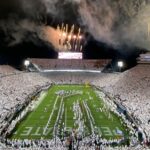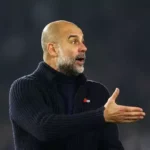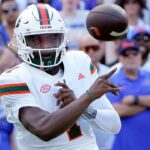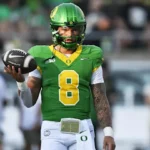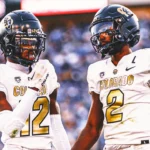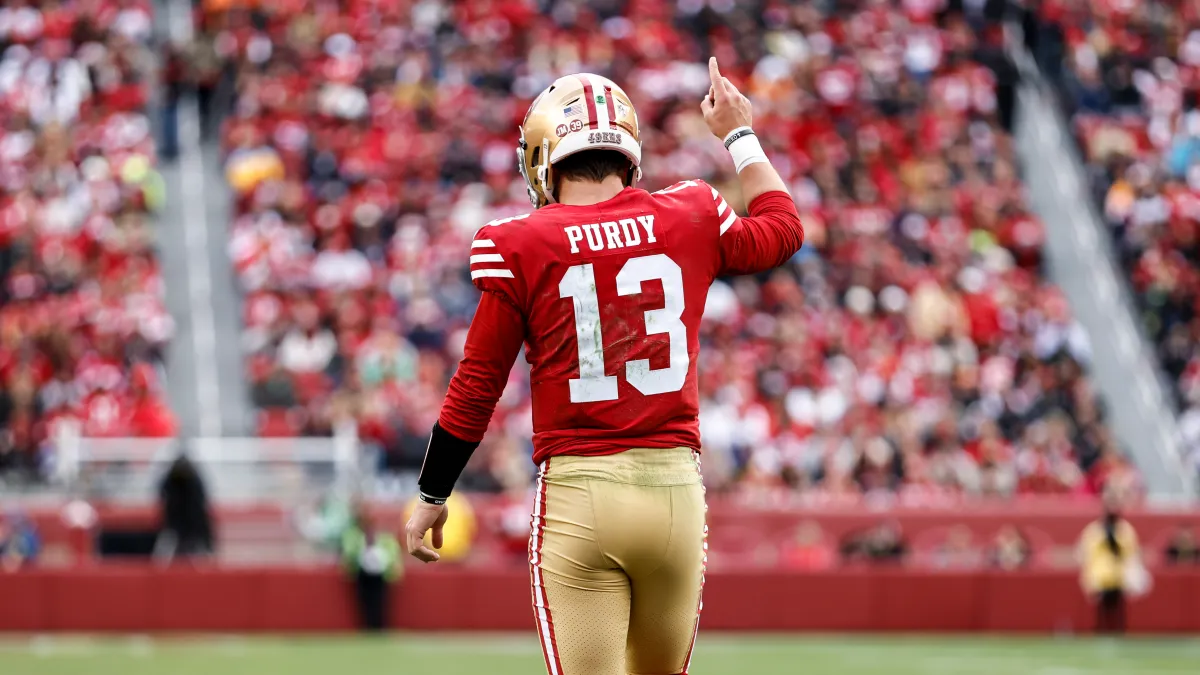Dumb Luck: The Path to Building a Championship Squad
With Brock Purdy, the former Mr. Irrelevant in the 2022 NFL Draft, emerging as a bona fide MVP candidate and leader of the one-seed San Francisco squad, the question of how you best build a winning football team has been asked on numerous occasions. It basically boils down to two schools of thought. Do you find the franchise quarterback and then build a team around him? Or do you build the team up first and then insert said quarterback? Throughout the past two decades, the answer has been both, and also neither. Here, we’ll evaluate what might be the best possible route, but also how much luck is involved in NFL front offices.
When you think of the best football player of all time, many will first look at the former New England Patriot. Six super bowls in Foxborough and one more in Tampa Bay, Brady was the gold standard for over 20 years. Brady, drafted in 2000, was taken in the sixth round by the Patriots and stashed away for a year before taking the reins two weeks into 2001. What followed was one of the greatest championship runs in professional sports history. Now former head coach Bill Belichick arrived the same year as Brady, and led the team to a paltry 5-11 finish in year one. The Super Bowl the next season was a product of great defensive coaching, and a little Brady magic (and the tuck rule).
That team, at its core, was built for a championship run. Key defensive starters Willie McGinest, Ty Law, and Lawyer Milloy were already there. Future Hall of Famer Adam Vinatieri was also spearheading the special times long before Belichick got there. All of the players were Bill Parcells’ finds. They also had a Pro Bowl quarterback in Drew Bledsoe to lead the charge. Instead, it took Brady to get them there.
Now there are a few directions this argument could go. One could say that Brady was always the clear superior to Bledsoe, who at one point went number one overall in the draft instead of 199. You could also say those early Patriot teams were great off the strength of a great defensive cast and the legendary mind of Belichick. Both would be fair, and both would signal towards building up the team first rather than finding the quarterback.
Now, let’s take a look at Brady’s major competitor in the AFC: Peyton Manning. Manning, like Bledsoe, was the number one overall pick in his respective class. Manning went to Indianapolis, who then went on to have another putrid season in 1998, Manning’s rookie season. Sure, the Colts had two future Hall of Famers in Marvin Harrison and Marshall Faulk, but Harrison was still in his infancy as a pro and Faulk did nothing to dispel the ever-growing notion that the running back was not the key to a franchise.
In 1999, Faulk was traded, the Colts drafted another future Hall of Famer in Edgerrin James, and the offensive juggernaut that was the 2000s Indianapolis Colts took off. Over the years, the Colts did plenty to surround Manning with a quality cast. Players like James, Reggie Wayne, Dallas Clark, and Bradon Stokely were brought in early in Manning’s career to uplift him, or perhaps the other way around. Manning’s Indianapolis career would satisfy the notion that finding the right quarterback first is the best way to build a winning team. All of the pieces can just fall right into place after.
Now, Brady and Manning have plenty in common. What the Colts and the Patriots have in common with these two players is luck. Luck is the driving force to success in the National Football League. What follows suit with this theory is that you have to take chances on countless occasions and hope that your intuition pays off.
Let’s circle back to Manning for a second. Peyton Manning left Tennessee after his senior season. At the end of his junior year, Manning had already had an illustrious career as a starter on an SEC contender. Manning, however, chose to stay in school one more year and “enjoy his experience.” Which just meant that he didn’t want to play for the New York Jets, the owners of the number-one pick in 1997. Who can blame him? Fast forward to 1998. Even though Manning was still considered the same prospect, another prospect had caught fire that season and was getting substantial buzz around NFL circles: Ryan Leaf. Many analysts and front office gurus had predicted that Leaf had much more upside and could’ve been the pick. It took pre-draft meetings with both prospects for former Colts general manager Bill Polian to go with Manning instead of the future biggest bust of all time. He needed multiple things to happen to land the quarterback that would pivot the Colts out of the realm of mediocrity and despair.
In Brady’s case, even more luck was involved. His college career ended on a high note with a come-from-behind win over Alabama in the Orange Bowl, but his time in Ann Arbor was scrutinized for Lloyd Carr’s ability to choose between Brady and former all-time recruit Drew Henson. Brady was not ranked high in the 2000 quarterback class, and the Patriots seemed the least likely to take a chance on him. They already had Bledsoe, whom they were about to pay $100 million. They had John Friez, who at one point started multiple seasons for the San Diego Chargers. Finally, former college star Michael Bishop was also on the roster at the time of Brady’s selection. Once draft day hit, Belichick and longtime QB coach Dick Rehbein saw that Brady kept falling, and took a chance. It’s also worth mentioning that Brady’s hometown team needed a quarterback in that class. They selected one in the third round. Giovanni Carmazzi out of Hofstra never played a game for the Niners, which is even more lucky for the Patriots.
Of course, the rest is history. Brady spends the entire season on the roster as the fourth quarterback, which is lucky in his case. Bledsoe gets crushed by Mo Lewis against the Jets after the game was postponed a week. Brady never relinquished the job and proceeded to torment the AFC East and the NFL for over 20 years. They had the pieces in place, but it also took Brady to surge the Pats toward immortality.
That would be a classic example of one school of thought versus the other, but what about today’s NFL? You could look at the 49ers as the best-case scenario for building a team and then finding your franchise quarterback. The 49ers under Kyle Shanahan also trotted out Brian Hoyer, CJ Beathard, Nick Mullens, Jimmy Garoppolo, and traded three first-round picks for Trey Lance, all to find their future star with the last pick in the draft. Luck.
The Texans this season were going to be led by a first-year head coach. They held the first pick in the draft all season long before winning their final game and dropping to two. Everybody ripped the Texans for winning, especially after Carolina traded a haul to Chicago for the right to take former Heisman winner Bryce Young. So, Houston settles at two with CJ Stroud, who will now be starting for the Texans in the divisional round this weekend. Luck.
There are other notable examples of both. Philadelphia won the Super Bowl in 2017 behind a regular-season MVP performance from Carson Wentz and the playoff magic of Nick Foles. They also had in place a top-two offensive line that they kept building under the tutelage of Jeff Stoudland and defensive led by Brandon Graham and Fletcher Cox that stayed intact long enough for the team to double back on their commitment to Wentz and draft Jalen Hurts to be the future. That’s just damn good luck.
The Jets, in their pursuit of a championship, felt that they had built a championship-caliber roster and pushed their chips to the center to get Aaron Rodgers. Rodgers tears his Achilles four plays into the season and the Jets finish 7-10 for the second straight year. Bad luck, but luck nonetheless.
The point that is being made is that there is no right way to build a roster. You could do everything you thought was right, and get kicked to the curb in three years. You can take a flier on a random quarterback in the late rounds and be Super Bowl contenders for a decade. You never know. Some teams are blessed with luck. The Green Bay Packers, with the performance of Jordan Love down the stretch, are lucky. Very, very lucky. Sometimes it just happens. The only way to run a team is actually the cliche that every general manager says come draft time: take the best guy available, and let the chips fall where they may. Maybe you end up with Brady, maybe you end up with Manning, but maybe you end up liking the New York Jets your entire life. Dumb luck.
